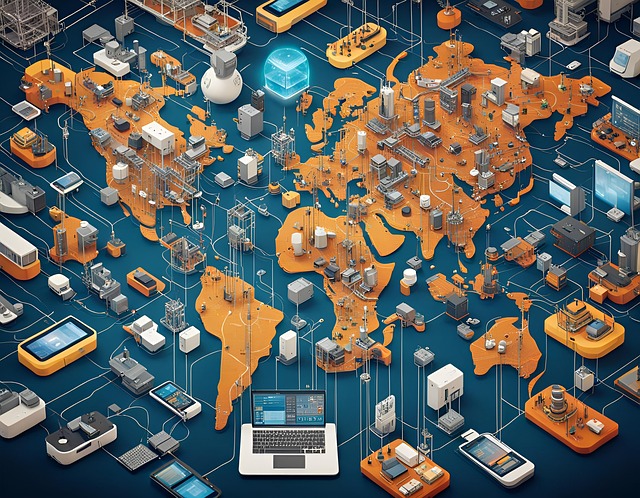AI sustainability models are revolutionizing prefab housing by automating document processing, design optimization, and resource allocation. These advanced algorithms reduce manual errors, streamline permit processes, and enhance project management, leading to faster decision-making and cost savings. By integrating AI into the industry, construction companies can prioritize eco-friendly practices, minimize waste, and offer innovative, affordable housing solutions while adapting to changing regulations and consumer preferences.
“Discover how Artificial Intelligence (AI) is transforming the prefab housing industry through automated document processing. This article explores ‘Understanding AI Automation’, delving into its benefits, especially in enhancing efficiency and reducing costs. We examine ‘Sustainable Models’ where AI acts as a game-changer, revolutionizing construction methods. By leveraging AI technology, these innovative ‘sustainability models for prefab housing’ promise eco-friendly, cost-effective solutions, reshaping the future of residential construction.”
- Understanding AI Automation in Document Processing for Prefab Housing
- The Benefits of AI Implementation: Efficiency and Cost Savings
- Sustainable Models: AI's Role in Revolutionizing Prefab Housing Industry
Understanding AI Automation in Document Processing for Prefab Housing

In the realm of prefab housing, Artificial Intelligence (AI) is revolutionizing document processing, offering sustainable and efficient solutions. AI automation streamlines the management of blueprints, engineering drawings, and legal documents, which are vital for prefab housing construction. By implementing AI, builders can significantly reduce manual errors, speed up permit processes, and enhance overall project management.
AI sustainability models for prefab housing integrate advanced algorithms to analyze and categorize documents, ensuring compliance with local building codes and regulations. This technology enables quick access to critical information, allowing for faster decision-making and optimized resource allocation. With AI handling document processing, the focus shifts towards innovative design and construction techniques, contributing to a greener and more efficient housing industry.
The Benefits of AI Implementation: Efficiency and Cost Savings

The implementation of Artificial Intelligence (AI) in mobile homes and automated document processing brings about a revolution in efficiency, particularly within the realm of prefab housing construction. AI sustainability models can optimize various processes, from design to assembly and operation. By leveraging machine learning algorithms, these systems streamline tasks that were once time-consuming and prone to human error. For instance, AI can analyze building plans, identify potential issues, and suggest cost-effective alternatives, reducing material waste and labor costs significantly.
Moreover, automated document processing powered by AI ensures a structured and digital workflow, eliminating the need for manual data entry. This not only saves time but also minimizes errors and enhances overall project management. With AI handling routine tasks, construction companies can allocate resources more efficiently, allowing them to take on larger projects or focus on enhancing the quality of their prefab housing units.
Sustainable Models: AI's Role in Revolutionizing Prefab Housing Industry

In the pursuit of a sustainable future, AI is playing a pivotal role in revolutionizing the prefab housing industry by introducing innovative and eco-friendly models. These AI-driven systems offer efficient document processing capabilities, streamlining the production and management of prefabricated homes. By automating tasks such as design customization, material ordering, and quality control, AI ensures precision and reduces waste, aligning with sustainability goals.
Sustainable models leveraging AI can optimize resource utilization, making prefab housing more affordable and environmentally conscious. They enable quick adaptation to changing building codes and customer preferences while minimizing the carbon footprint associated with traditional construction methods. This technology is transforming how we approach housing, promising a greener and more efficient prefabricated housing industry.
AI automation is transforming the prefab housing industry, offering unprecedented efficiency gains and cost savings. By leveraging sustainable models of AI document processing, manufacturers can streamline production, reduce waste, and enhance overall quality. As the technology continues to evolve, AI has the potential to revolutionize the sector, making prefab housing more accessible, affordable, and environmentally friendly. Embracing these innovations is key to staying competitive in a rapidly changing market, ensuring a brighter future for sustainable construction.
